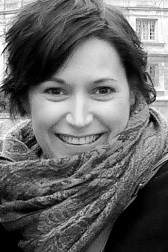Katrin Armborst (geb. Zippel)
|
| E-Mail: Sprechstunde: Postadresse: | |||
CVStudium der Geschichte, Politikwissenschaft und Kunstgeschichte an den Universitäten Trier und Lund/Schweden Abschluss mit einer interdisziplinären Magisterarbeit zur Funktion der Fotografie in der rassenbiologischen Forschung der Zwischenkriegszeit (Schweden im Bild. Fotografische Darstellung in den Arbeiten von Herman Lundborg und dem rassenbiologischen Institut Uppsala) betreut von Prof. Lutz Raphael (NNG) und Prof. Alexandra Karentzos (Kunstgeschichte) Universität Trier Seit 2009 wissenschaftliche Mitarbeiterin bei Prof. Dr. Ulrich Herbert am Lehrstuhl für Neuere und Neueste Geschichte, Albert-Ludwigs-Universität Freiburg Visiting Student, Columbia University, New York /USA (2011/2012) Visiting Scholar, Cambridge University /UK (Lent Term 2013) | ||||
ForschungA Blue Penciled World. The United Nation’s Take on Global Governance in the 1960s Congo Crisis Africa’s “heart of darkness” has incited the imagination of many. But the history of the Congo offers more than a thrilling novel plot. During the Congo crisis in the 1960’s the country was the setting for one of the most influential events of modern international history when the United Nations, a non-state actor, challenged the state domination of the global political system amidst the struggles for power between the East and the West, the North and the South with an impact that is felt until today. Cold war dynamics and decolonization processes had created an uncertain stalemate at the end of the 1950s. In the UN Secretariat under Secretary General Dag Hammarskjöld this was taken as an opportunity to boldly question state’s ownership of politics on the global scale. The UNO underwent a reinvention process to fit a new concept: that of a powerful non-state player stepping into this void assuming and thus redefining roles formerly held by states alone. Legitimized by the establishment of moral authority the UN Secretary General now took a stand in major international political debates and the United Nations went right into the heart of contemporary international conflicts making use of newly developed instruments, from preventive diplomacy techniques to the ultimate intervention, military peacekeeping operations. This represents a watershed moment in the evolution of the international system from Vienna in the early 19th century to the present; a turn shaped by the specific dynamics and interrelations of the North-South and East-West divides in the early 1960s. The Congo crisis became the ultimate practical test for the concept taking the UN in four years almost to the brink of bankruptcy with the intervention of the military peacekeeping mission ONUC (Opération des Nations Unies au Congo, 1960-1964). With independence from brutal Belgian rule on 30 June 1960 the Congo plunged into a series of political and humanitarian crises where social upheavals and cessation movements of provinces challenged the independent state’s formation. Competing local, regional, and international political and economic interests further fuelled the conflict in one of Africa’s biggest and richest countries; a conflict costing the lives of Congo’s first prime minister, Patrice Lumumba, countless Congolese and hundreds of UN soldiers and staff, Secretary General Dag Hammarskjöld among them. With ONUC, the UN became part of a severe conflict of the Cold War and one of the continent’s most dramatic crises of decolonization; a situation proving nearly too much for the organization. This research project chronicles the rise and demise of the concept of a powerful non-state UN actor in the experiment of the Congo intervention during the country’s painful transformation period from colonial rule to independence. It addresses a turning point in the history of the world organization with repercussions to the present day. The analysis of rich but yet mostly unexplored archival sources in the UN archives portrays a battle for global governance between state and non-state actors. It retraces negotiations over the nature and functions of a state and gives thus insight into the dynamics of the Cold War and decolonization processes in the 1950s and ‘60s. | ||||
Publikation
Rezensionen:
| ||||

